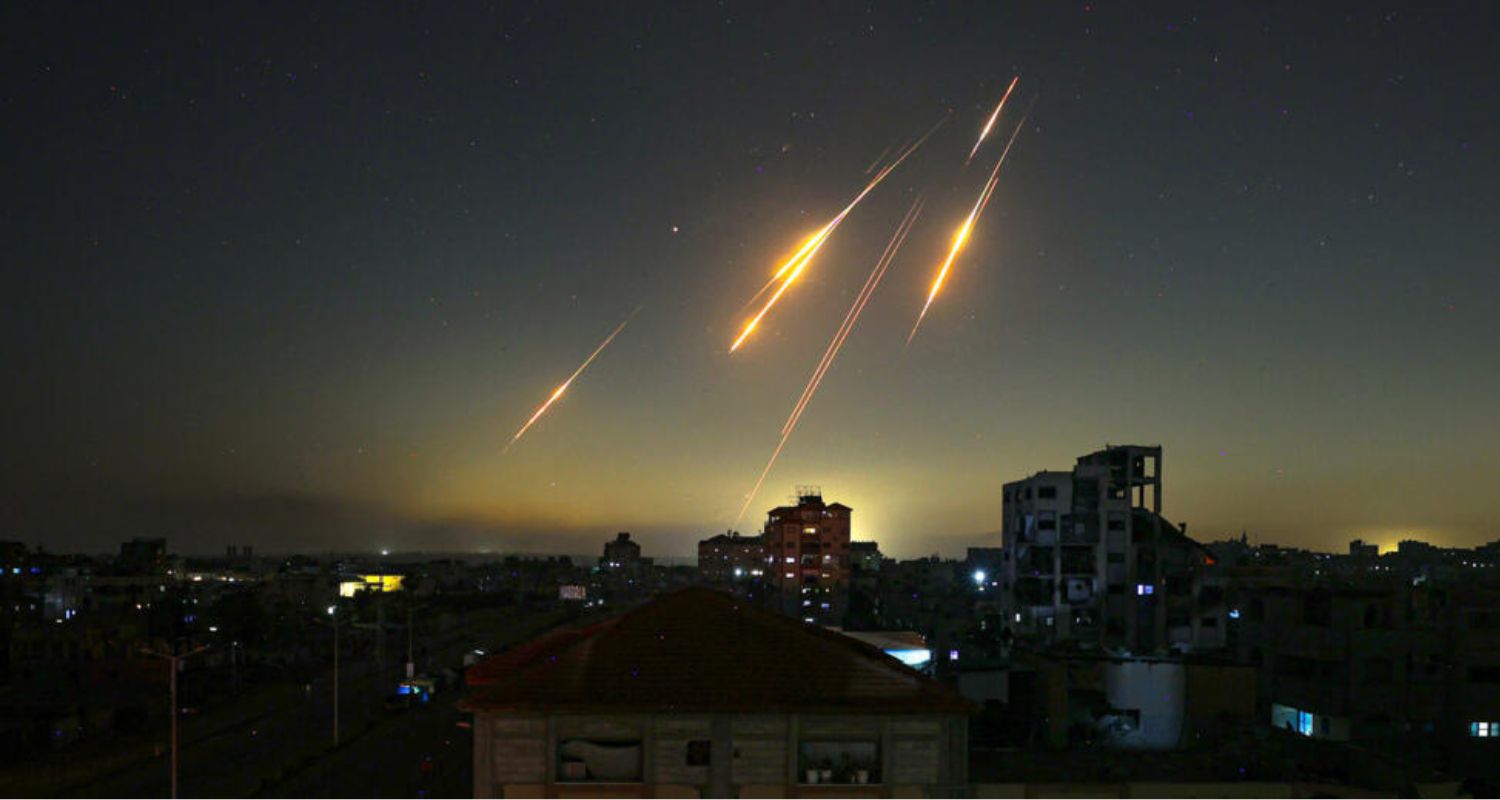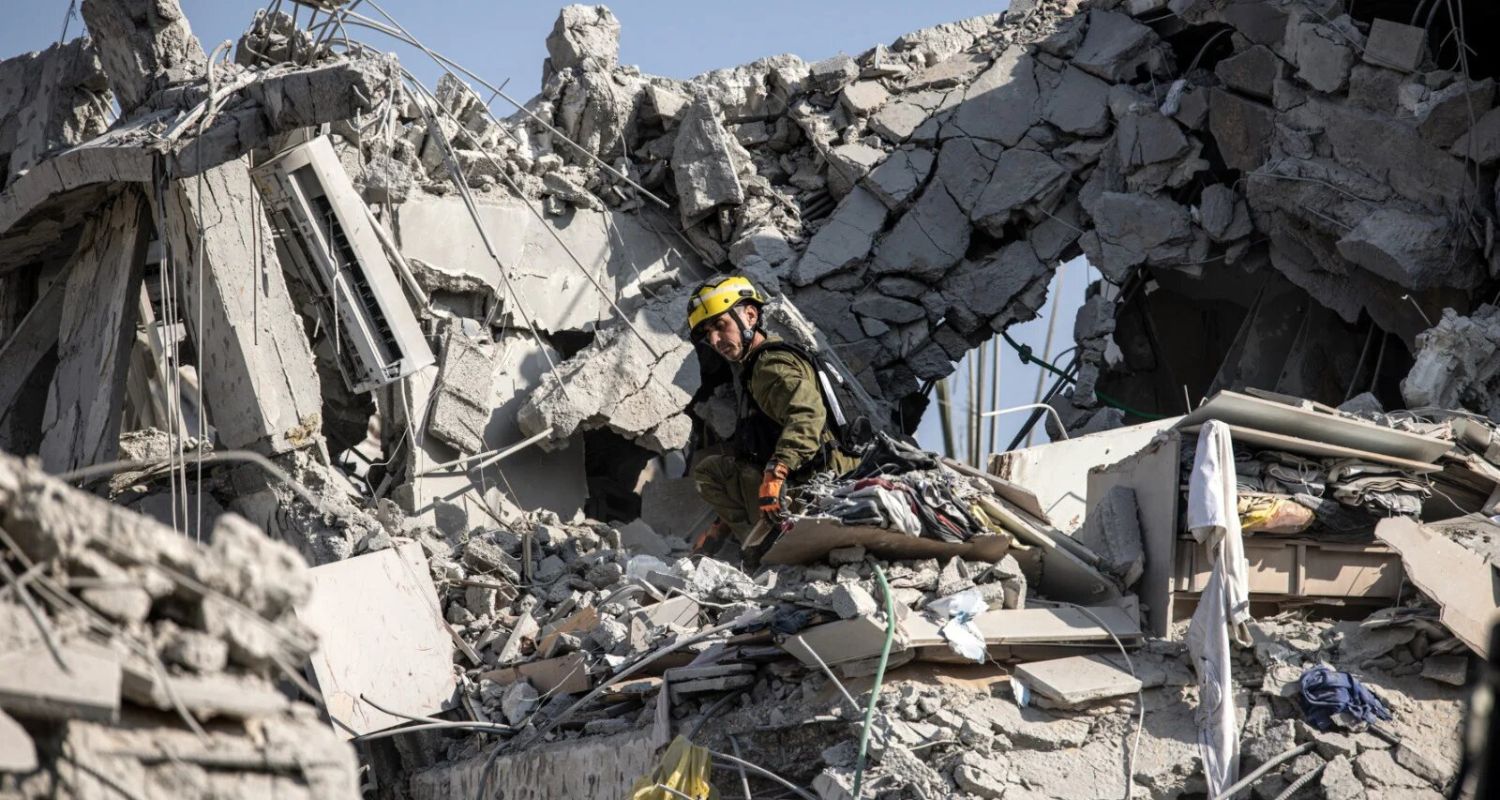Iran and Israel exchanged intense missile strikes and air attacks on Saturday, escalating tensions in the region just a day after Israel launched a massive air offensive targeting Iranian nuclear facilities, military bases, and key personnel. The Israeli attack, which aimed to halt Iran's nuclear ambitions, killed top commanders, scientists, and reportedly damaged critical nuclear infrastructure.
Iranian state television reported that around 60 people, including 20 children, were killed when a housing complex in Tehran was struck. Additional airstrikes were reported across the country as Israel claimed to have hit more than 150 targets.
In Israel, air raid sirens blared as waves of Iranian missiles crossed the sky. Interceptor systems were deployed, but not all attacks were stopped. At least three people were killed, and dozens were injured. An Israeli official confirmed that Iran had launched approximately 200 ballistic missiles in four separate waves.
US support and warnings
US President Donald Trump praised Israel’s offensive and warned Iran of more severe consequences unless it agrees to scale back its nuclear program. Scheduled nuclear talks between the U.S. and Iran, originally set for Sunday, now appear uncertain.
The US, Israel's key ally, provided assistance in intercepting Iranian missiles, according to two American officials. However, some Iranian projectiles still reached Israeli civilian areas. Israeli Defence Minister Israel Katz stated bluntly, “If [Supreme Leader Ayatollah Ali] Khamenei continues to fire missiles at the Israeli homefront, Tehran will burn.”

Iran has vowed to retaliate further for Israel’s Friday assault, which reportedly killed 78 people and injured over 320, according to Iran’s UN envoy. Tehran also warned that military bases belonging to Israel’s allies could become targets if they assist in intercepting Iranian missiles.
The conflict has raised fears of a broader regional war involving outside powers. Gulf nations have urged restraint, concerned about potential attacks on their territories and the disruption of oil exports, which caused crude prices to surge by around 7% on Friday. Iran’s Houthi allies in Yemen also launched missiles toward Israel, but at least one missed and injured five Palestinians—including three children—in the West Bank, according to the Palestinian Red Crescent.
Despite Iran's efforts to mobilize regional allies, its influence has been weakened by recent wars. The ongoing conflict in Gaza and a previous confrontation in Lebanon have significantly damaged the capabilities of groups like Hamas and Hezbollah.
A night of chaos and fear
In Israel, missile attacks led to widespread fear and destruction. In Rishon LeZion, south of Tel Aviv, emergency workers rescued a baby girl from a collapsed home. In Ramat Gan, near Ben Gurion Airport, residents reported heavy damage from missile impacts. “We were sitting in the shelter, and then we heard such a boom. It was awful,” said resident Linda Grinfeld.
The Israeli military said it intercepted many of Iran’s surface-to-surface missiles and drones. Two rockets were also fired from Gaza. With Iran’s air defences reportedly damaged, Israeli Air Force Chief Tomer Bar declared, “The road to Iran has been paved.” Israel has begun deploying reservists along the Lebanese and Jordanian borders in preparation for possible further escalation.
In Iran, state media reported explosions throughout the capital. According to Fars News, two projectiles struck Mehrabad Airport in Tehran, a dual-use civilian and military site. One 14-storey building, the Shahid Chamran housing complex, was reportedly destroyed, killing 60 people. Israel has not yet commented on that specific strike.
Iran’s nuclear programme targeted
A senior Israeli military official said that nine Iranian nuclear scientists were killed and that nuclear sites in Esfahan and Natanz had been significantly damaged—repairs may take weeks. Israel framed the strikes as necessary to prevent Iran from reaching the final stages of building a nuclear bomb.
Iran insists its nuclear programme is for peaceful purposes, in line with its obligations under the Nuclear Non-Proliferation Treaty (NPT). However, it has concealed parts of its program in the past, prompting criticism from the International Atomic Energy Agency (IAEA). Israel, which has not signed the NPT and is widely believed to possess nuclear weapons, maintains that it cannot allow Iran to become a nuclear-armed state.

Ongoing U.S.-Iran nuclear negotiations have stalled. Tehran has suggested it may not attend the next round of talks scheduled in Oman. Iranian Foreign Ministry spokesman Esmaeil Baghaei said: “The other side [the U.S.] acted in a way that makes dialogue meaningless. You cannot claim to negotiate while allowing the Zionist regime to attack Iran’s territory.” Global calls for peace are growing. In Rome, Pope Leo issued an appeal: “No one should ever threaten the existence of another. It is the duty of all countries to support the cause of peace.” He urged world leaders to pursue dialogue and a future free from nuclear threats.
Also Read: Iran launches fresh missile attack on Israel



